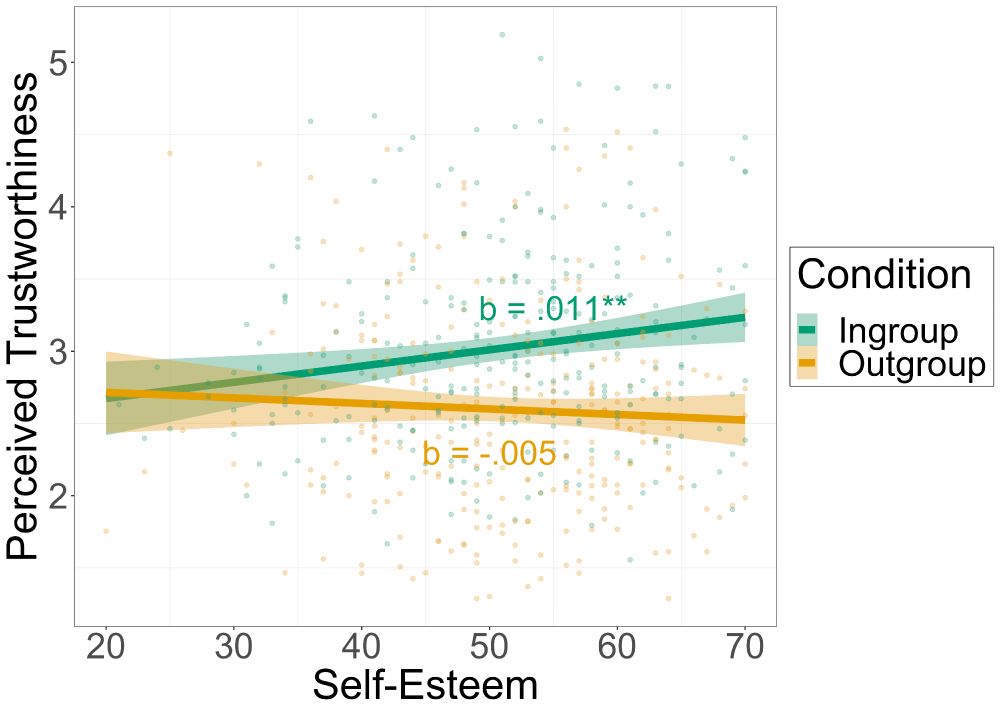Youngki Hong
@youngkihong.bsky.social
Study 3: We used OpenFace to test whether people were just matching based on trustworthiness. Even after accounting for perceived trustworthiness, ingroup faces were objectively more similar to their creators, confirming a role for self-image.
(4/5)
(4/5)

September 1, 2025 at 4:43 PM
Study 3: We used OpenFace to test whether people were just matching based on trustworthiness. Even after accounting for perceived trustworthiness, ingroup faces were objectively more similar to their creators, confirming a role for self-image.
(4/5)
(4/5)
Study 2: Ingroup faces resembled their creators. An independent sample could match ingroup faces to photographs of the people who generated them better than chance, suggesting self-image guided the visual representations.
(3/5)
(3/5)

September 1, 2025 at 4:43 PM
Study 2: Ingroup faces resembled their creators. An independent sample could match ingroup faces to photographs of the people who generated them better than chance, suggesting self-image guided the visual representations.
(3/5)
(3/5)
Study 1: People with higher self-esteem generated ingroup faces that were perceived as more trustworthy to others. Self-evaluation shaped how “us” looked even in novel group settings.
(2/5)
(2/5)

September 1, 2025 at 4:43 PM
Study 1: People with higher self-esteem generated ingroup faces that were perceived as more trustworthy to others. Self-evaluation shaped how “us” looked even in novel group settings.
(2/5)
(2/5)
In Study 3, we merely assigned participants to groups without the competitive framing. Sound symbolism effects on group perception reemerged. However, sound–shape congruence rates were still lower than in the no-group condition in Study 1. (6/7)

July 11, 2025 at 7:48 PM
In Study 3, we merely assigned participants to groups without the competitive framing. Sound symbolism effects on group perception reemerged. However, sound–shape congruence rates were still lower than in the no-group condition in Study 1. (6/7)
The Bouba–Kiki effect is a well-documented phenomenon in sound symbolism. People reliably associate round-sounding words like “Bouba” with round shapes and sharp-sounding words like “Kiki” with angular shapes. We asked: What happens when those sounds are used as group names? (1/7)

July 11, 2025 at 7:48 PM
The Bouba–Kiki effect is a well-documented phenomenon in sound symbolism. People reliably associate round-sounding words like “Bouba” with round shapes and sharp-sounding words like “Kiki” with angular shapes. We asked: What happens when those sounds are used as group names? (1/7)

